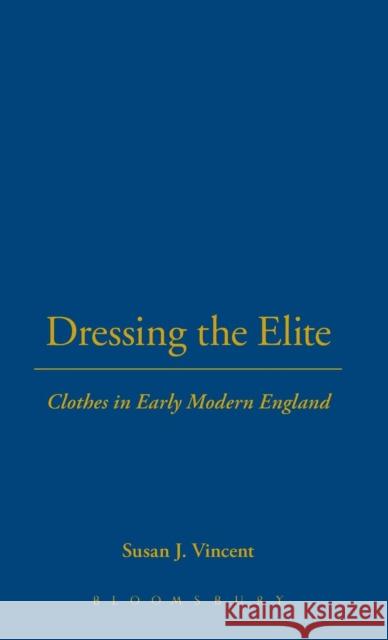Dressing the Elite: Clothes in Early Modern England » książka
Dressing the Elite: Clothes in Early Modern England
ISBN-13: 9781859737460 / Angielski / Twarda / 2003 / 240 str.
Dressing the Elite: Clothes in Early Modern England
ISBN-13: 9781859737460 / Angielski / Twarda / 2003 / 240 str.
(netto: 650,37 VAT: 5%)
Najniższa cena z 30 dni: 644,49
ok. 22 dni roboczych.
Darmowa dostawa!
Clothing occupies a complex and important position in relation to human experience. Not just utilitarian, dress gives form to a society's ideas about the sacred and secular, about exclusion and inclusion, about age, beauty, sexuality and status. In Dressing the Elite, the author explores the multiple meanings that garments held in early modern England.Clothing was used to promote health and physical well-being, and to manage and structure, life transitions. It helped individuals create social identities and also to disguise them. Indeed, so culturally powerful was the manipulation of appearances that authorities sought its control. Laws regulated access to the dress styles of the elite, and through less formal strategies, techniques of disguise were kept as the perquisites of the powerful.Focusing on the elite, the author argues that clothing was not just a form of cultural expression but in turn contributed to societal formation. Clothes shaped the configurations of the body, affected spaces and interactions between people and altered the perceptions of the wearers and viewers. People put on and manipulated their garments, but in turn dress also exercised a reverse influence. Clothes made not just the man and the woman, but also the categories of gender itself. Topics covered include cross-dressing, sumptuary laws, mourning apparel and individual styles.











